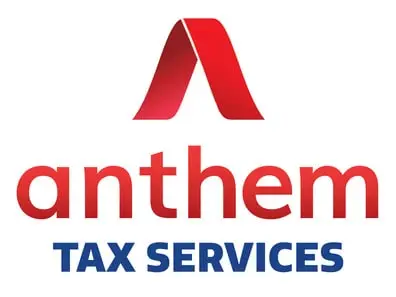
While most individuals filing taxes find themselves in the position of receiving a refund, that is not always the case for everyone. As it is, owing taxes may feel like a heavy burden on average taxpayers. The current COVID-19 pandemic has had a powerful impact on millions of Americans over the last few weeks, many of whom have found themselves recently unemployed. Owing taxes in the middle of a crisis is far from ideal, however, if you find yourself part of the minority of citizens owing the IRS money, there are a few methods in which you may ease your burden.
What if you are unemployed and owe taxes?
Hold off on Payments
Due to the COVID-19 crisis, the tax filing deadline has been extended beyond the normal date of April 15th. Because of this, the date to file your taxes for 2019 has been extended to July 15th, 2020 and, if you find yourself owing taxes, payments may be postponed for three months. Not only are taxpayers not required to pay a tax bill upon filing it also gives you more time to collect the money to pay taxes in this uncertain time.
Seek Out an Installment Plan
Should you find yourself currently in the position of owing taxes, regardless of whether the world is experiencing a pandemic, it is typical of the IRS to offer ways to work with individuals. Perhaps you don’t have the funds to pay off owed tax debt by the extended due date, however, the IRS has installment plans in place for when people find themselves unable to pay off their balance in one lump sum. Installment plans offer 120 days after the July 15th deadline without additional setup fees. On the other hand, if you choose to forego a formal payment arrangement and opt instead for a direct deposit option with the IRS a fee will be incurred. If you find yourself meeting specific income criteria spelled out by the IRS, you may receive a fee reduction for direct deposit.
An Offer in Compromise
To settle tax debt, an offer in compromise may be submitted to the IRS. Typically, the amount offered is less than that which is owed however it isn’t an option unique to COVID-19. Although they are difficult to qualify for, the option of an offer in compromise has been in place for years. In order for the IRS to accept a proposed offer in compromise, it must be proven that the entire amount owed presents undue financial hardship if paid in full. Most importantly, you must submit a reasonable offer, for example: the IRS is less likely to accept an offer $1,200 for a $9,000 debt. Should your offer be closer to half the full amount, or more, the IRS might accept the amount and make an agreement.
An offer in compromise can be quite difficult to qualify for, even in 2020, regardless of pandemic related layoffs. A crisis-related layoff still might not qualify as a valid reason to avoid paying the full amount of your tax bill. A multitude of individuals currently find themselves without paychecks or facing long-term unemployment and the IRS may not consider it as a legitimate reason to forgo paying tax debt. Take time to explore all of your options by contacting us by email or at (855) 749-2859 if you find yourself in the position of owing taxes and choose the option that fits your circumstance best. While it is far from ideal to find yourself owing taxes in the midst of a worldwide pandemic, it isn’t not worth panicking over.
Frequently Asked Questions Regarding
A New Unemployment Status & Back Taxes
What if I have a Current Installment Agreement in Place?
If you currently have an installment agreement in place with the IRS and suddenly find yourself unable to afford minimum payments, don’t hesitate to contact us to discuss the best options regarding your unemployment status. You may qualify for a Hardship Status with the IRS and request placement into Currently Non Collectible Status. The IRS does not place those in a financial status where they are unable to afford monthly living expenses, to receive payment. If you cannot afford even the bare necessities, such as rent/mortgage, healthcare, utilities, childcare or even groceries, do not hesitate to contact us with your concerns.
What if I don’t have a Current Installment Agreement?
Should you find yourself with an existing Installment Agreement in place and are in active collections, you can call the IRS in order to update your status of unemployment. More often than not, the IRS may only request to see a copy of an official letter from an unemployment office. Alternatively, a copy of your unemployment check may suffice – this also goes for individuals on Welfare.
If I am Currently on Unemployment Benefits, will I Qualify for an Offer in Compromise?
Regardless of their new “unemployment status”, many taxpayers are under the impression that they will not qualify for an Offer in Compromise. The truth of the matter is, the IRS makes determinations based on the individual taxpayer’s ability to pay. The IRS reviews each applicant’s appreciable equity in assets with a 20% reduction in value, in addition to other standard exemption amounts. To determine an OIC amount, income and living expenses are examined. For example, those currently living paycheck to paycheck are most likely to qualify for an offer if they have no appreciable equity in assets.
The IRS cannot make a collection determination if you receive unemployment benefits as income because of the temporary nature surrounding unemployment benefits. In this case, the IRS does not entertain the idea of an OIC, simply because they need to see potential of income once your period of unemployment comes to a close.
While most individuals filing taxes find themselves in the position of receiving a refund, that is not always the case for everyone. As it is, owing taxes may feel like a heavy burden on average taxpayers. The current COVID-19 pandemic has had a powerful impact on millions of Americans over the last few weeks, many of whom have found themselves recently unemployed. Owing taxes in the middle of a crisis is far from ideal, however, if you find yourself part of the minority of citizens owing the IRS money, there are a few methods in which you may ease your burden.
What if you are unemployed and owe taxes?
Hold off on Payments
Due to the COVID-19 crisis, the tax filing deadline has been extended beyond the normal date of April 15th. Because of this, the date to file your taxes for 2019 has been extended to July 15th, 2020 and, if you find yourself owing taxes, payments may be postponed for three months. Not only are taxpayers not required to pay a tax bill upon filing it also gives you more time to collect the money to pay taxes in this uncertain time.
Seek Out an Installment Plan
Should you find yourself currently in the position of owing taxes, regardless of whether the world is experiencing a pandemic, it is typical of the IRS to offer ways to work with individuals. Perhaps you don’t have the funds to pay off owed tax debt by the extended due date, however, the IRS has installment plans in place for when people find themselves unable to pay off their balance in one lump sum. Installment plans offer 120 days after the July 15th deadline without additional setup fees. On the other hand, if you choose to forego a formal payment arrangement and opt instead for a direct deposit option with the IRS a fee will be incurred. If you find yourself meeting specific income criteria spelled out by the IRS, you may receive a fee reduction for direct deposit.
An Offer in Compromise
To settle tax debt, an offer in compromise may be submitted to the IRS. Typically, the amount offered is less than that which is owed however it isn’t an option unique to COVID-19. Although they are difficult to qualify for, the option of an offer in compromise has been in place for years. In order for the IRS to accept a proposed offer in compromise, it must be proven that the entire amount owed presents undue financial hardship if paid in full. Most importantly, you must submit a reasonable offer, for example: the IRS is less likely to accept an offer $1,200 for a $9,000 debt. Should your offer be closer to half the full amount, or more, the IRS might accept the amount and make an agreement.
An offer in compromise can be quite difficult to qualify for, even in 2020, regardless of pandemic related layoffs. A crisis-related layoff still might not qualify as a valid reason to avoid paying the full amount of your tax bill. A multitude of individuals currently find themselves without paychecks or facing long-term unemployment and the IRS may not consider it as a legitimate reason to forgo paying tax debt. Take time to explore all of your options by contacting us by email or at (855) 749-2859 if you find yourself in the position of owing taxes and choose the option that fits your circumstance best. While it is far from ideal to find yourself owing taxes in the midst of a worldwide pandemic, it isn’t not worth panicking over.
Frequently Asked Questions Regarding
A New Unemployment Status & Back Taxes
What if I have a Current Installment Agreement in Place?
If you currently have an installment agreement in place with the IRS and suddenly find yourself unable to afford minimum payments, don’t hesitate to contact us to discuss the best options regarding your unemployment status. You may qualify for a Hardship Status with the IRS and request placement into Currently Non Collectible Status. The IRS does not place those in a financial status where they are unable to afford monthly living expenses, to receive payment. If you cannot afford even the bare necessities, such as rent/mortgage, healthcare, utilities, childcare or even groceries, do not hesitate to contact us with your concerns.
What if I don’t have a Current Installment Agreement?
Should you find yourself with an existing Installment Agreement in place and are in active collections, you can call the IRS in order to update your status of unemployment. More often than not, the IRS may only request to see a copy of an official letter from an unemployment office. Alternatively, a copy of your unemployment check may suffice – this also goes for individuals on Welfare.
If I am Currently on Unemployment Benefits, will I Qualify for an Offer in Compromise?
Regardless of their new “unemployment status”, many taxpayers are under the impression that they will not qualify for an Offer in Compromise. The truth of the matter is, the IRS makes determinations based on the individual taxpayer’s ability to pay. The IRS reviews each applicant’s appreciable equity in assets with a 20% reduction in value, in addition to other standard exemption amounts. To determine an OIC amount, income and living expenses are examined. For example, those currently living paycheck to paycheck are most likely to qualify for an offer if they have no appreciable equity in assets.
The IRS cannot make a collection determination if you receive unemployment benefits as income because of the temporary nature surrounding unemployment benefits. In this case, the IRS does not entertain the idea of an OIC, simply because they need to see potential of income once your period of unemployment comes to a close.


